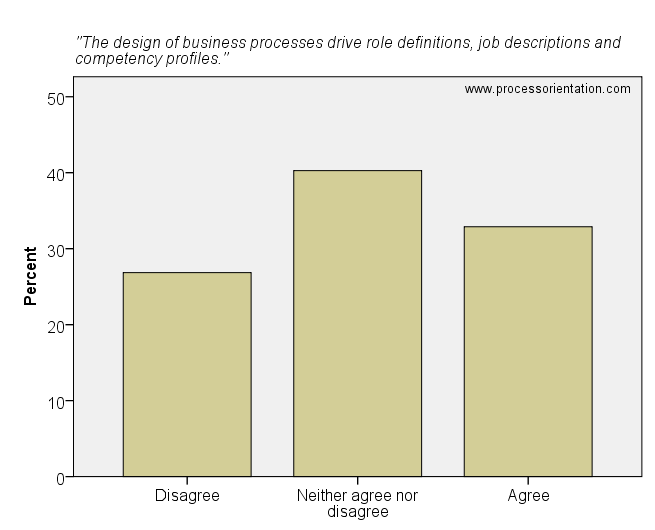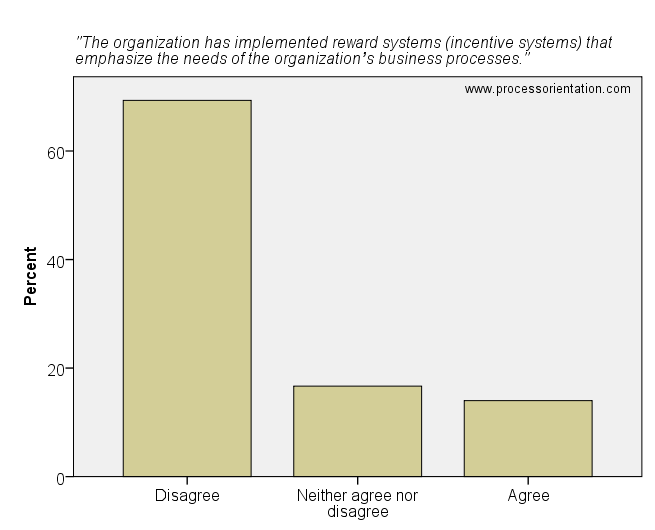Human resources systems have to support the process approach (Hammer, 2007). Process-oriented HR-systems incorporate job descriptions based on business process design and incentive systems that emphasize the process’ needs. This article discusses empirical insights on process-oriented HR-systems using the results of the process management survey. Survey details (research design, sample, etc.) can be found here.
In most of the firms, the design of business processes moderately drive role definitions, job descriptions and competency profiles (see figure below). The item “Process’ design drive role definitions, job descriptions and competency profiles” was rated by the firms in the sample as follows:
- 26,85%: Disagree
- 40,27%: Neither agree nor disagree
- 32,89%: Agree
Old reward systems based on the functional model are no longer viable in a process-based organization (Armistead and Rowland, 1996). Traditional vertical management systems pull people in one direction, whereas they should work for the interest of inter-functional processes. Therefore, management systems also need to emphasize the process’ needs, otherwise conflict and confusion ensue, lowering performance (Hammer and Stanton, 1999). Interestingly, most of the surveyed organizations do not have reward systems in place that emphasize the needs of the organization’s business processes. The item “Our organization has implemented reward systems (incentive systems) that emphasize the needs of the organization’s business processes” was rated by the firms as follows:
- 69,33%: Disagree
- 16,67%: Neither agree nor disagree
- 14,00%: Agree

